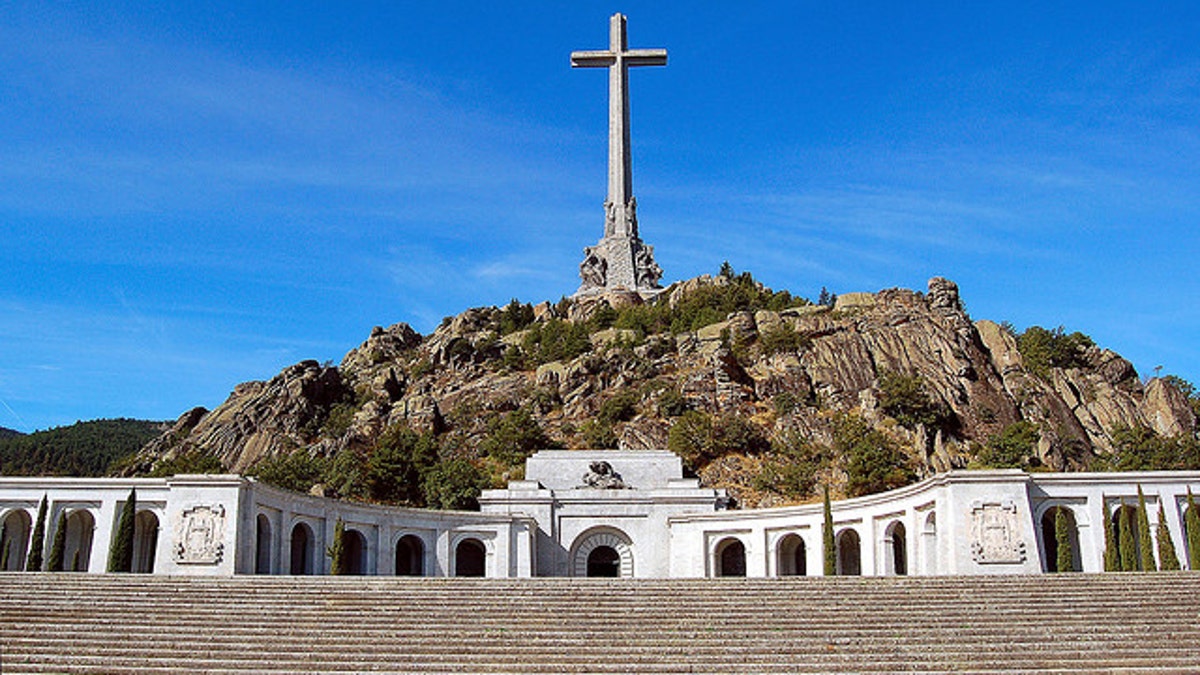
(Raúl A)
A commission appointed by Spain's outgoing Socialist government said Tuesday that the remains of former strongman Gen. Francisco Franco should be exhumed from his tomb at a politically contentious Civil War memorial site and be given to the dictator's family for reburial.
Any such decision is up to a conservative administration that is due to take power next month and probably unlikely to go along with the idea.
Besides Franco's remains, the site known as the Valley of the Fallen holds the bones of nearly 34,000 people from both sides in the 1936-39 war. But it is Spanish right-wingers' most potent and beloved symbol of the Franco era. It features a 150-meter (yard) stone cross that can be seen far from the site about 45 kilometers (30 miles) northwest of Madrid.
The commission of lawyers said their report that the site should be officially designated as a memorial for victims of both sides in the conflict and Franco's remains should be removed because he did not die in the war, but rather of natural causes in 1975.
Moving Franco's bones would help turn the site into one of "tribute to all victims of the war," the report said.
- Spain Turns Right, Deals Socialists Historic Defeat
- Spain Readies For General Elections
- Spain’s Top Court Clears Guards of Torture in ETA Case
- Best Pix of the Week
- Best Sports Pix of the Week
- Jobless Mexicana Flight Attendants Pose for Calendar
- Meet Miss Pole Dance South America
- Spain’s Running of the Bulls: Run for Your Life!
The panel was appointed under a law that took effect in 2007 to address victims of Spain's civil war. The commission noted that as Franco's body lies in a basilica on the grounds of the Valley of the Fallen, moving it is up to the Catholic church because the church has jurisdiction over that part of the sprawling site.
The 2007 bill, called the Historic Memory Law, marked the first time a government in Spain condemned the nearly 40-year Franco regime. In another first it also provided for government help to people trying to locate the remains of relatives who died in the war. Many were buried in mass graves. The law also ordered the removal of Franco statues from public places and the renaming of streets and plazas named after the general or other people associated with his regime.
Until the law was passed, the Valley of the Fallen drew crowds of people nostalgic for his rule on the anniversary of his death on Nov. 20, 1975. But the bill banned such demonstrations.
The center-right Popular Party, which will take power Dec. 22, opposed the law on the ground that it was best not to stir up memories of Spain's wartime past. So it seems unlikely that the party would go along with the panel's recommendations.
The expert panel said the new government should seek a consensus in Parliament on moving Franco's body and then negotiate such a transfer with the church.
The body of José Antonio Primo de Rivera, founder of Falange, the political movement that backed up the Franco regime, also lies in the basilica. But the lawyers said it should be left alone because this man did die in the war.
Based on reporting by the Associated Press.
Follow us on twitter.com/foxnewslatino
Like us at facebook.com/foxnewslatino







































